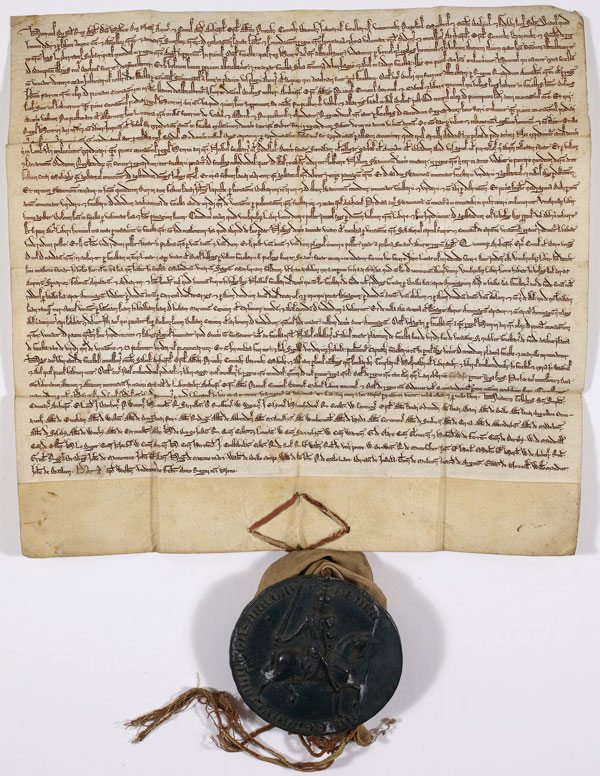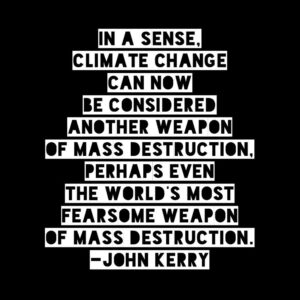
This week, Britain celebrates the 800th anniversary of “the sealing in London’s St Paul’s Cathedral of the Charter of the Forest.”
Haven’t heard of the “Charter of the Forest”? The Guardian’s Felicity Lawrence explains that it is:
the lesser-known but equally significant twin of Magna Carta, asserted the rights of ordinary people to access from “the commons” the means for a livelihood and shelter, whether it was grazing their livestock, cutting wood for housing and fuel, fishing and hunting, creating water mills, or sharing the other resources of the forest. It restricted the rights of the king and nobles to privatize and exploit the forest while guaranteeing the rights of the commoners.
Lawrence adds that its “resonances today are so strong that this ancient document from 1217 is providing the inspiration for events across Great Britain.” According to Lawrence, “Harking back to ancient principles as defined in the Charter of the Forest is not just an exercise in nostalgia. It is a way of breaking out of the dead end we have reached in politics over the past three to four decades.”
Lawrence lays out what she thinks a modern “commons” charter might look like:
Sign up for our free newsletters
Subscribe to NPQ's newsletters to have our top stories delivered directly to your inbox.
By signing up, you agree to our privacy policy and terms of use, and to receive messages from NPQ and our partners.
Start with the link back to the Charter of the Forest. Ancient trees planted in public space belong to everyone, not just in the current generation but also in future ones. Local charters would recognize them as inalienable assets so that they could not be sold off to be cut down. But a 21st-century commons…would take in more than trees. Natural resources on which we all depend, such as water, air, energy sources, mineral wealth under land or sea should be held in common. Natural monopolies and strategic industries should be brought back in to public ownership.
Lawrence cites examples where common ownership policies already prevail. In Denmark, Lawrence notes, “three-quarters of wind turbines are co-owned by local communities. Community ownership of wind power works. As of 2012, an article by Patrick Kingsley notes, Denmark had “over 6,000 turbines—2,000 more than Britain, despite being a sixth of the size.”
Germany is also turning to community partnership. According to Lawrence, “a growing number of municipalities are buying back their local grids, and communities frequently own and profit from the infrastructure for renewable energy generation.” For example, in Hamburg, a city with a population of 1.8 million, citizens voted in 2013 to compel a “reluctant Hamburg city council to re-acquire a controlling stake in the local electric power grid,” notes Mattias Krause, writing for Green Tech Media.
“Natural mineral resources,” writes Lawrence, “are also part of the commons—and where extracting has a detrimental impact on the wider population, it is their interest that should prevail—whether it be leaving them in the ground to mitigate climate change or sharing the profits when appropriate.”
In Britain, Lawrence adds, such views are starting to get national attention, with the Labour Party, the leading opposition in Parliament, taking on some of its tenets. “Guy Standing, a professor of development economics, is one of those calling for a new charter of the commons, re-establishing the right of the property-less to a basic income, affordable housing, energy and water, and common ownership or control of the means of providing it,” says Lawrence. Standing, Lawrence points out, is “an economic adviser to the shadow chancellor, John McDonnell,” and finds himself increasingly “asked to talk about the commons to chief executives and hedge fund managers around the world.”
While US mainstream party leaders are not today advocating for a charter of the commons, our society faces similar tensions. As Elizabeth Castillo wrote recently in NPQ, nonprofits “must find our voice to protect core social values and help create new systems of social protections.” Echoing Britain’s activists, Castillo added, “If we want our country to thrive in the coming centuries, we must develop the wisdom and will to restore reciprocity as America’s guiding economic principle.”—Steve Dubb













